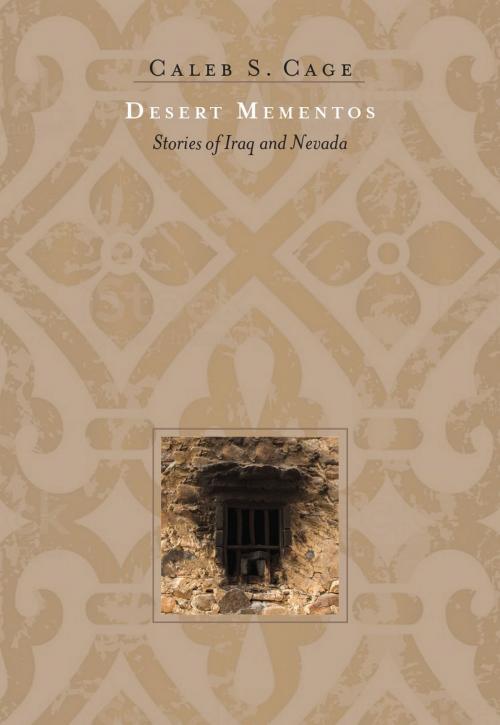| Author: | Caleb S. Cage | ISBN: | 9780874176575 |
| Publisher: | University of Nevada Press | Publication: | September 6, 2017 |
| Imprint: | University of Nevada Press | Language: | English |
| Author: | Caleb S. Cage |
| ISBN: | 9780874176575 |
| Publisher: | University of Nevada Press |
| Publication: | September 6, 2017 |
| Imprint: | University of Nevada Press |
| Language: | English |
Desert Mementos is a collection of loosely connected short stories set during the early stages of the Iraq War (2004 and 2005). The stories rotate from battles with insurgents and the drudgery of the war machine in Iraq to Nevada, where characters are either preparing for war, escaping it during their leave, or returning home having seen what they’ve seen.
Cage captures similarities in the respective desert landscapes of both Iraq and Nevada, but it is not just a study in contrasting landscapes. The inter-connected stories explore similarities and differences in human needs from the perspectives of vastly different cultures. Specifically, the stories deftly capture the overlap in the respective desert landscapes of each region, the contrasting cultures and worldviews, and the common need for hope. Taken together, the stories represent the arc of a year-long deployment by young soldiers. Cage’s stories are bound together by the soldier’s searing experiences in the desert, bookended by leaving and returning home to Nevada, which in many ways can be just as disorienting as patrolling the Iraq desert.
Desert Mementos is a collection of loosely connected short stories set during the early stages of the Iraq War (2004 and 2005). The stories rotate from battles with insurgents and the drudgery of the war machine in Iraq to Nevada, where characters are either preparing for war, escaping it during their leave, or returning home having seen what they’ve seen.
Cage captures similarities in the respective desert landscapes of both Iraq and Nevada, but it is not just a study in contrasting landscapes. The inter-connected stories explore similarities and differences in human needs from the perspectives of vastly different cultures. Specifically, the stories deftly capture the overlap in the respective desert landscapes of each region, the contrasting cultures and worldviews, and the common need for hope. Taken together, the stories represent the arc of a year-long deployment by young soldiers. Cage’s stories are bound together by the soldier’s searing experiences in the desert, bookended by leaving and returning home to Nevada, which in many ways can be just as disorienting as patrolling the Iraq desert.















